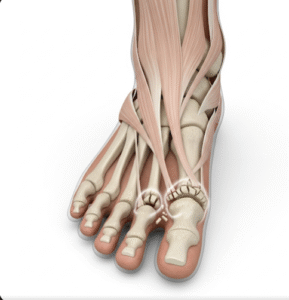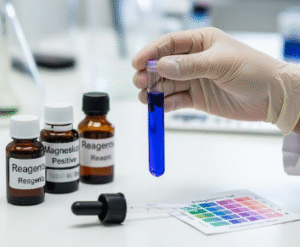Korea has become one of Asia’s leading destinations for clinical research. Medical centers across the country are expanding their facilities, partnering with global pharmaceutical companies, and launching new trials that range from cancer therapies to digital health technologies. The following highlights showcase some of the most recent and important developments shaping clinical trials in Korea today.
Major Clinical Trials and Partnerships
➤ Early-Phase Expansion at Gil Medical Center
Gachon University’s Gil Medical Center has strengthened its early-phase research through collaboration with international clinical research organizations. The center is focusing on Phase I and II studies and exploring decentralized trial systems that allow patient participation from remote locations.
➤ AstraZeneca and Severance Hospital Partnership
Severance Hospital in Seoul recently established a strategic partnership with AstraZeneca Korea to enhance clinical trial efficiency and expand therapeutic research. This collaboration supports faster trial processes and fosters innovation in oncology and cardiovascular studies.
➤ Decentralized Clinical Trial Pilot Program
The Korea National Enterprise for Clinical Trials (KoNECT) has launched the nation’s first decentralized clinical trial (DCT) program. Seven major medical institutions are participating in this initiative, which allows patients to join studies without frequent hospital visits. The project aims to improve accessibility for patients in rural areas and increase enrollment efficiency.
➤ Kyungpook National University Hospital and Global Collaboration
Kyungpook National University Hospital (KNUH) has partnered with global research organizations to expand its trial capabilities. The hospital is enhancing its infrastructure to conduct more multinational and sponsor-driven studies, strengthening Korea’s position as a global hub for medical innovation.
➤ CHA Bundang Medical Center Research Expansion
CHA University’s Bundang Medical Center has signed research agreements with several clinical research companies to coordinate and streamline trials across Phases I–IV. The focus areas include oncology, reproductive health, and immunotherapy.
➤ Asan Medical Center and Seoul-Based Trials
Asan Medical Center continues to lead in cancer and metabolic disease studies. Current trials include new treatments for mixed dyslipidemia, metastatic gastric cancer, and immune-modulating therapies. The hospital’s research programs are setting new standards for patient-centered innovation.
➤ Advanced Genetic and Neurological Studies
Recent studies in major centers are examining genetic predictors for leukemia treatment response and novel neuromodulation therapies for psychostimulant use disorder. These projects represent Korea’s move toward personalized medicine and precision-based care.
Emerging Trends in Korean Clinical Research
1. Surge in Global and Sponsor-Driven Trials
The number of approved clinical trials in Korea has more than doubled over the past five years. Strong government support, efficient regulatory processes, and advanced hospital infrastructure make Korea an attractive location for global pharmaceutical and biotech companies.
2. Growth in Next-Generation Therapies
Korean researchers are increasingly focusing on advanced modalities such as cell and gene therapy, CAR-T and NK cell treatments, mRNA vaccines, and antibody-drug conjugates (ADCs). These cutting-edge trials reflect Korea’s commitment to next-generation medical innovation.
3. Adoption of Decentralized and Hybrid Trial Models
The introduction of decentralized clinical trials (DCTs) allows patients to participate remotely using telemedicine, wearable devices, and home-based sample collection. This model enhances convenience, lowers dropout rates, and makes participation accessible to a wider population.
4. Strategic Collaborations with CROs
Leading hospitals are partnering with contract research organizations (CROs) to improve operational efficiency. These collaborations enable shared data, faster trial setup, and easier international coordination between sites.
5. Focus on Data Standardization and Digital Integration
Hospitals like Jeonbuk National University Hospital are advancing data harmonization and adopting international standards for clinical research management. Digital platforms and AI-based analytics are also being introduced to improve accuracy and reduce administrative burden.
6. Regulatory and Governmental Support
Korea’s Ministry of Food and Drug Safety (MFDS) and KoNECT continue to streamline clinical trial approval processes. Government funding is being directed toward innovation zones, training programs for clinical professionals, and initiatives to attract foreign-sponsored research.
Benefits for Patients and Practitioners
- Greater Access to New Treatments: Patients in Korea can now participate in cutting-edge studies on cancer, neurology, and rare diseases without leaving the country.
- Regional Inclusion: Decentralized trial models allow patients in non-urban areas to join studies remotely, improving diversity and accessibility.
- High Ethical Standards: Korean hospitals adhere to international guidelines for patient safety, informed consent, and data protection.
- Opportunities for Clinics: Local healthcare providers can collaborate with academic hospitals or CROs to host sub-studies and recruit patients for larger global trials.
Looking Ahead
Korea’s medical centers are entering a new era of research leadership. By combining advanced digital infrastructure, global partnerships, and world-class clinical expertise, the country is setting new standards for innovation and collaboration in healthcare.
As these trials progress, Korean patients will gain earlier access to new treatments, while global medical research benefits from Korea’s precision, speed, and scientific rigor. The growing network of clinical research centers is transforming Korea into one of the most trusted and dynamic environments for modern medical trials.













